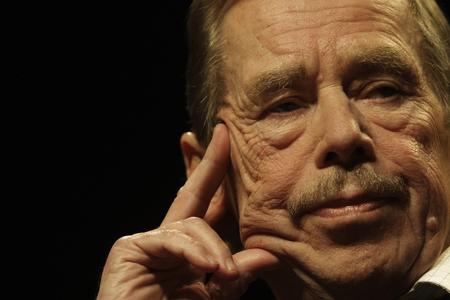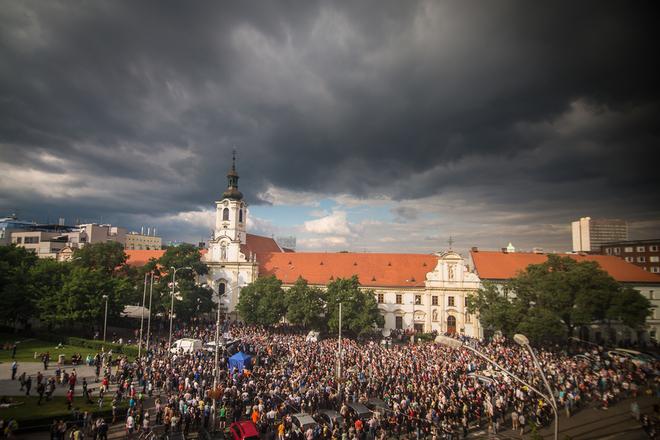In terms of anniversaries – and which newspaper can resist them? – this an unusually rich year.
Forty years ago this month, a handful of extraordinarily courageous individuals signed and published what would become known as Charter 77. An ostensibly unobjectionable request that the communist government of Czechoslovakia merely observe the human rights enshrined in its own laws and constitution, it highlighted the obvious lack of those rights.

It also earned its signatories more than a decade of harassment, and in some cases violent persecution and detention, at the hands of the regime – before they were vindicated in 1989.
Slovaks who now belittle human rights as some sort of politically correct indulgence would do well to remember that it was the sacrifice of other, braver men and women that helped secure the freedoms they now enjoy.
One hundred years ago this October (or November, depending on which calendar you use) came the ur-moment of modern history, the Russian Revolution.
It is revealing that its legacy is so ambiguous that the Russian government, in particular, seems at a loss to know how to mark the event, given how awkwardly it fits into the official mythology of the modern Russian state.
Few in Slovakia, beyond a handful of politicians for whom Marxism is more of a fashion statement than a philosophy, will celebrate it.
While that upheaval in the east came to have a major effect on this part of the world, it was an earlier event to the west that has had the greatest effect on Slovak and European culture.
Five hundred years ago, in 1517, Martin Luther affixed his 95 theses to the door of All Saints’ Church in Wittenberg and launched the Protestant Reformation.
Even in a continent which is now largely agnostic, the revolution in thought and attitudes that the Reformation heralded is still playing out.
Take Slovakia, which at times seems torn between its dearly held self-image as a Catholic country and its obvious admiration for the societies of northern Europe shaped by Protestantism. There has not been much forgiveness or compassion in evidence from the Slovak side during the Greek debt crisis, for example.
Is there some over-arching principle that connects these birthdays?
Probably not. Anniversaries are more important to journalists and party planners than anyone else.
But it is worth considering that all of these events resulted from outrage at perceived injustice. It is from a similar source that much of the current discontent in Slovakia arises.
There will not be a revolution here in 2017. But those in power should remember that, as history will no doubt show again, arrogance comes before a fall.



 There will not be a revolution this year, but there is discontent. (source: SITA)
There will not be a revolution this year, but there is discontent. (source: SITA)